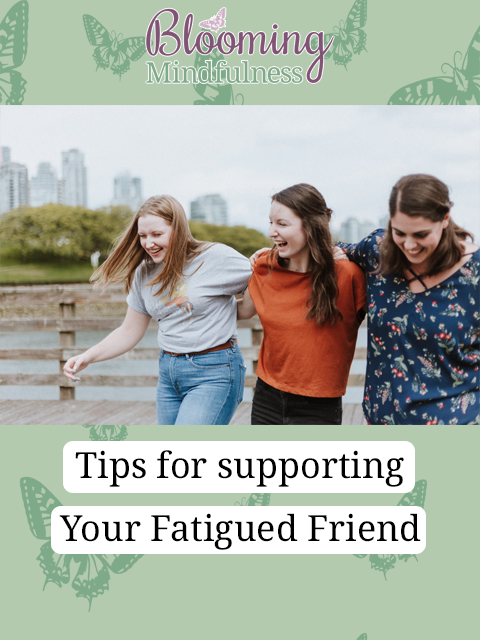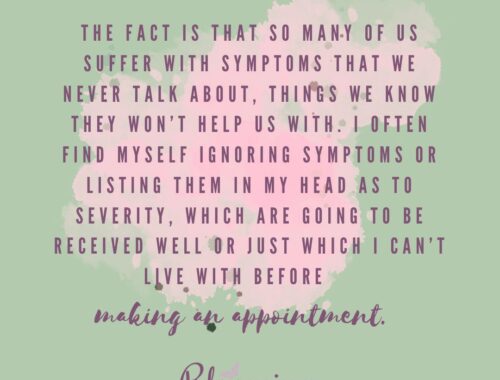
Tips for supporting your fatigued friend
My fatigue has flared quite badly recently, and I’ve come to realise that it’s hard for people to understand how that feels. In a bid to help that I thought I’d give some tips for supporting your fatigued friend.

[IMG]Picture shows three friends walking with arms around one another and smiling[IMG]
Fatigue is a difficult thing to understand, because everyone knows what it’s like to be tired, to need a nap. However, if someone is suffering with long Covid, ME/CFS, or has fatigue as a symptom that goes alongside their illness, it’s a very different thing. We in the chronic illness community have tried many different ways to explain fatigue, from rechargeable batteries to spoons but at the end of the day most people still think a nap will help.
This is not true though, I have fatigue and often am forced to take a nap, and though it will lessen the pain fatigue courses, it doesn’t take away the tiredness. I sleep well most nights getting 9hours of sleep, and yet the problems caused by fatigue are still there. It doesn’t stop a small amount of exercise knocking me off my feet for days, and it doesn’t mean that I don’t need my walking aid if I go out for the day.
It is a constant battle, a balance between doing too much and not enough to keep us going, pacing soon becomes the only way of treating it. There is no medication specifically for fatigue, though there are of course treatments for illnesses that can cause fatigue and should be talked through with a doctor.
But your friend or family member probably knows this, and though you might think offering suggestions from magazine articles or tv shows that could treat it…best not do that! Trust me as chronic illness sufferers we have also read those articles, tried those supplements and unfortunately most of the time it’s just a fad with no research behind it.
Tips for supporting your fatigued friend:
So what can you practically do to help someone you know and care about who is suffering with fatigue?
- Cook – one big thing that most people do not even think about is to cook for them, maybe make some healthy meals that are safe with any food allergies they have. They can then freeze them to eat on really bad days so they have healthy meals always to hand.
- Don’t walk too fast – now this is something I’ve had to deal with a lot, people take me out somewhere then walk their normal speed. I have to walk slower or I get out of breath and out of energy very quickly, so slow down and walk at their speed. It might feel frustrating but will mean a lot to your friend.
- Consider the invite – we always appreciate being invited out with you, but is the venue accessible? Will it be too loud or crowded, many people with fatigue can experience overwhelm where sounds etc can cause physical pain. Don’t stop asking us to join you, but be aware that these things will make it harder for us to enjoy ourselves or even to come along.
- Be patient – I know I’m not alone in this, I message someone and start to get worried or paranoid if the other person doesn’t reply especially if it says they read it. But with fatigue it might be hard to think straight to reply sometimes, also I often read a message when falling asleep and then forget to respond…
- Offer to help – I think naturally most of us want to help people we care about, but pride might hold us back from accepting help, or maybe they don’t actually need help. So yes offer to help, ask before assuming and trying to do things like push our wheelchair or tidy up. We are still people doing our best things just might take us longer or be done differently.
- Listen – not all problems need to be fixed, sometimes your friend just wants to moan about how accessible the street is. Or vent about their pain, be a good ear and listen because having someone we can vent to without them trying to take over and fix everything can be the most precious gift!
I really hope these tips for supporting your fatigued friend helps you to navigate things a little better, always remember we are individuals and everyone’s needs are different. But here are some things I’ve wished or found in friends.




